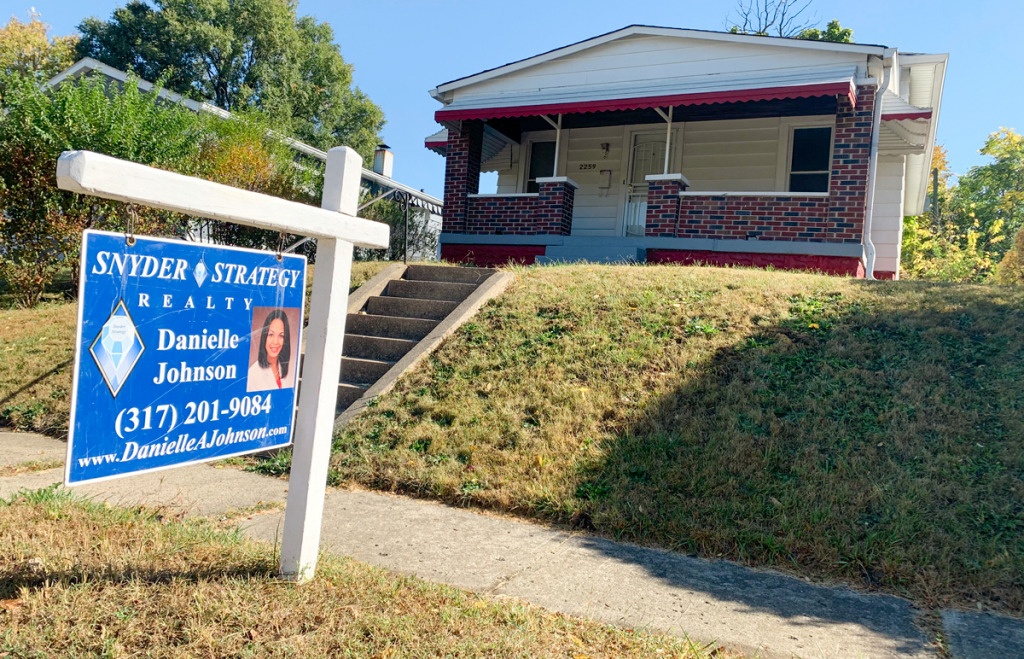Subscriber Benefit
As a subscriber you can listen to articles at work, in the car, or while you work out. Subscribe NowSales of previously occupied U.S. homes slumped in October to their slowest pace in more than 13 years as surging mortgage rates and rising prices kept many prospective homebuyers on the sidelines.
Existing home sales fell 4.1% last month from September to a seasonally adjusted annual rate of 3.79 million, the National Association of Realtors said Tuesday. That’s weaker than the 3.90 million sales pace economists were expecting, according to FactSet.
The last time sales slumped this hard was in August 2010, when the housing market was in recovery from a severe crash.
Sales sank 14.6% compared with the same month last year. They have fallen five months in a row, held back by climbing mortgage rates and a thin supply of properties on the market.
Despite the decline in sales, home prices keep climbing compared with this time last year. The national median sales price rose 3.4% from October last year to $391,800.
“Lack of inventory along with higher mortgage rates are really hindering home sales,” said Lawrence Yun, the NAR’s chief economist.
The weekly average rate on a 30-year mortgage hovered above 7% in September, when many of the home sales that were finalized in October would have gone under contract. It has remained above that threshold since, surging in late October to 7.79%, the highest average on records going back to late 2000, according to mortgage buyer Freddie Mac. Last week, the rate averaged 7.44%.
High rates can add hundreds of dollars a month in costs for borrowers, limiting how much they can afford in a market already out of reach for many Americans. They also discourage homeowners who locked in far lower rates two years ago, when they were around 3%, from selling.
Despite the pullback in sales, homebuyers still had to navigate a competitive market due to the chronic shortage of homes for sale, especially the most affordable homes.
Homes sold last month typically within just 23 days after hitting the market, and about 28% of properties sold for more than their list price, a sign that many homes are still receiving multiple offers, the NAR said.
All told, there were 1.15 million homes on the market by the end of last month, up 1.8% from September, but down 5.7% from October last year, the NAR said. Before the pandemic, there were roughly twice as many homes on the market.
The available inventory at the end of last month amounts to a 3.6-month supply, going by the current sales pace. In a more balanced market between buyers and sellers, there is a 4- to 5-month supply.
Sales remain weakest among the most affordably priced homes. Sales for homes priced between $100,000 and $250,000 sank 18% in October from a year earlier. However, sales jumped 9% among homes priced at $1 million or above.
“On the upper end we do have more inventory and we are seeing more sales, clearly implying that if we have more inventory sales can occur,” Yun said.
Despite the sales decline, the trickle of homes being put on the market continues to give sellers an advantage over buyers. Not only are multiple offers still happening with nearly a third of all homes sold, but homebuyers are increasingly waving home inspections and appraisals in hopes of edging out other buyers.
“Given the lack of inventory, home sellers are essentially in the driver’s seat,” Yun said.
The combination of higher mortgage rates and rising prices has particularly stymied first-time homebuyers who don’t have any home equity to put toward their down payment. They accounted for just 28% of all homes sold last month. Historically, it was not unusual for them to make up 40% of sales.
Prospective homebuyers could be in for some good news in coming months, if mortgage rates continue to ease.
Rates have been declining in recent weeks along with the 10-year Treasury yield, which lenders use as a guide to pricing loans. The yield, which just a few weeks ago was above 5%, its highest level since 2007, has fallen amid hopes that inflation has cooled enough to pave the way for the Federal Reserve to cut rates.
Yun is forecasting that the average rate on the 30-year home loan will dip below 7%, perhaps to 6.5%, by spring.
“Maybe we will begin to see some turnaround in affordability, but we still need inventory,” he said.
Please enable JavaScript to view this content.

